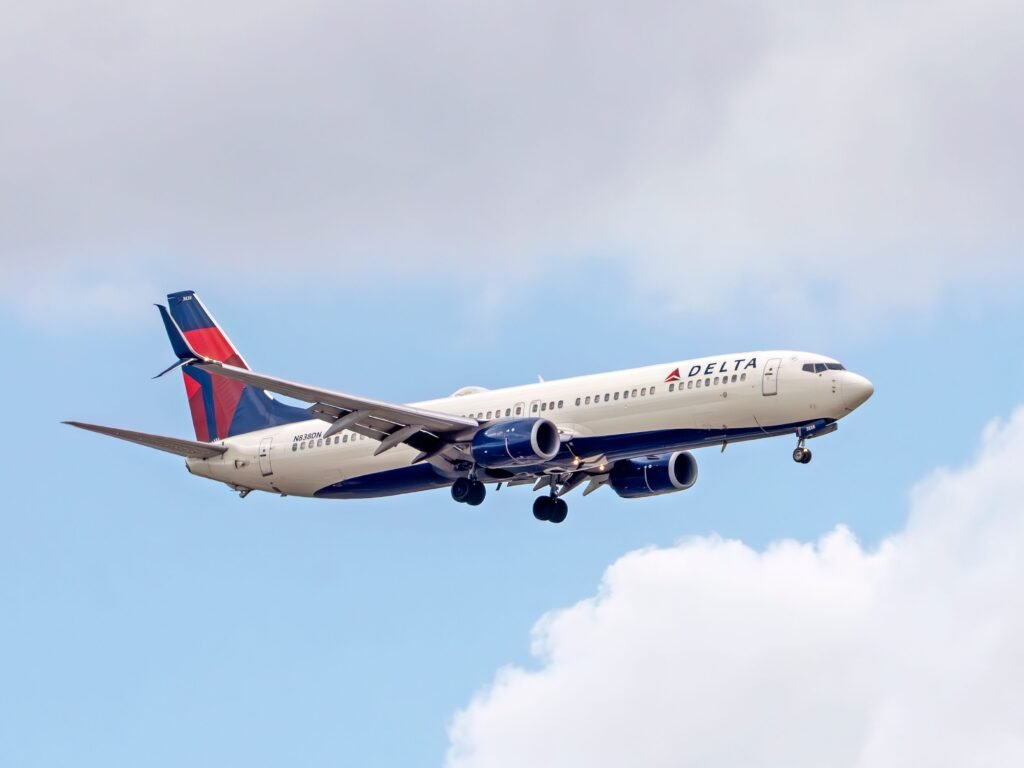
Ronen Tivony/NurPhoto via Getty Images
- Delta was met with swift backlash when it said it was ramping up its plans to use AI to set fares.
- It showed a challenge companies face with satisfying shareholders and consumers when it comes to AI.
- Industry experts said AI adoption requires transparency and a focus on improving the customer experience.
When Delta last month said it was ramping up its use of AI to set fares, the backlash from customers was swift.
It demonstrated a common problem companies face in the age of AI: how to adopt new technology (and brag about it to please shareholders) without freaking out consumers.
Delta has said it is not using AI to set different prices for different individuals based on their personal data. Instead, the airline says AI is being used to improve existing dynamic pricing practices that are already used across the industry.
“There is no fare product Delta has ever used, is testing, or plans to use that targets customers with individualized offers based on personal information or otherwise,” the company said in a statement provided to Business Insider.
Travelers were still spooked. Online, they complained about the potential for price gouging, and lawmakers sent a letter demanding answers from Delta, citing concerns about data privacy and the potential for price discrimination.
“It sounds very dystopian to me,” Brent McDonald, a lawyer based in Salt Lake City and a frequent Delta flyer, told Business Insider. McDonald said in cities like Salt Lake, which is a major hub for Delta, there are not a lot of options for direct flights.
“With that monopoly power, it could be very abusive to use AI to maximize the amount of money they’ll get from each customer,” he said.
Tim Sanders, vice president of research insights at G2, told Business Insider, “When you say you have artificial intelligence in a consumer product, it raises red flags with consumers.”
Investors, on the other hand, tend to love it since it can lead to efficiency gains.
“Delta, in an effort to impress its investors, stepped into a PR backlash,” he said.
Consumers don’t trust AI, so messaging is key
Industry experts who spoke to Business Insider said Delta’s lack of details in its initial public discussions of using AI led some consumers to worry about potential worst-case scenarios.
On Investor Day in November, Delta said about 1% of its network had fares set using AI. Delta President Glen Hauenstein said, “The initial results show amazingly favorable unit revenues” and that, eventually, “we will have a price that’s available on that flight, on that time to you, the individual.”
On Delta’s second-quarter earnings call in July, Hauenstein said AI was now being used to set prices on about 3% of its domestic network and that the goal was to get to 20% by the end of the year.
“We’re in heavy testing phase,” he said. “We like what we see.”
After Sen. Ruben Gallego sent a letter to Delta requesting answers about its AI pricing, the airline responded and said much of what was being said about their process was false.
“Your letter presupposes that we are using, and intend to use, AI for ‘individualized’ pricing or ‘surveillance’ pricing, leveraging consumer-specific personal data, such as sensitive personal circumstances or prior purchasing activity to set individualized prices,” the airline said in a letter dated July 31. “To clarify, this is incorrect, and this assumption, unfortunately, has created confusion and misinformation in the public discourse.”
Delta also shared more details about how it’s using AI. The airline said AI is assisting human analysts by forecasting demand for specific routes, aggregating purchasing data, and factoring in thousands of variables at once — though not personal data.
Sanders said being transparent about how AI is being used could help address the issue of consumer trust.
He said companies should look toward the transparency practices at AI industry leaders like OpenAI, which he noted has introduced features that have ChatGPT show its work and explain its reasoning.
One way airlines could do that would be to show fare factors on its ticket prices, or to provide some explanation about how a price was set. He also said airlines could allow users to opt out of AI-priced seats and make it clear that could mean some seats may not be offered to them.
Companies should talk about how they’re using AI to improve their service
Clint Henderson, managing editor at the travel website The Points Guy, said he’s worried that AI being used in pricing could actually lead airlines to penalize their most loyal customers by upcharging them because they will pay more to stick to the airline and get the points.
But he said AI pricing could potentially be used for good, too, like by giving a discount to a new customer or offering cheaper upgrades to first or business class by finding just the right price for someone to splurge.
Zack Kass, an AI advisor and former head of go-to-market at OpenAI, said rather than talk vaguely about how AI is boosting profits, companies need to talk about how they are using AI to improve the customer experience.
“Talk about how your wait time on customer support is coming down. Talk about how you’re improving on time arrivals. Talk about how you’re using AI to lose fewer bags,” Kass told Business Insider.
Kass said many consumers might even approve of an airline charging wealthy passengers, like those who always opt for first-class, a bit more in order to provide lower prices to others. However AI is being used to improve the actual product or provide goods and services at a lower cost, he said it’s incumbent on companies to tell that story.
The way individual companies talk about AI doesn’t just impact their business either, Sanders said, but can also slow adoption across the board if it creates broader distrust among consumers.
“Trust in AI arrives by a mule,” he said. “It leaves on a Maserati.”
Have a tip? Contact this reporter via email at kvlamis@businessinsider.com or Signal at @kelseyv.21. Use a personal email address, a nonwork WiFi network, and a nonwork device; here’s our guide to sharing information securely.


